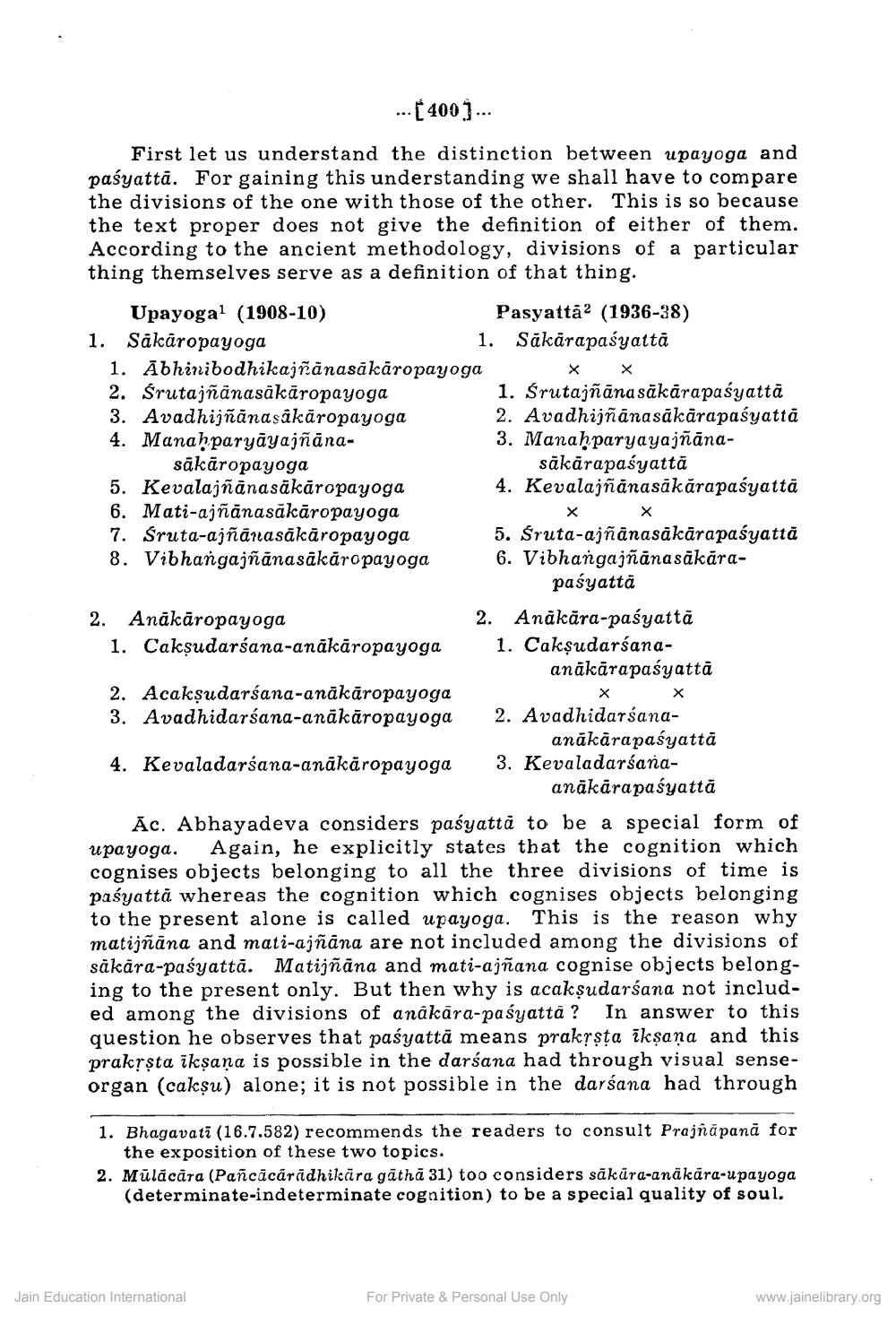________________
... [400]...
First let us understand the distinction between upayoga and paśyatta. For gaining this understanding we shall have to compare the divisions of the one with those of the other. This is so because the text proper does not give the definition of either of them. According to the ancient methodology, divisions of a particular thing themselves serve as a definition of that thing.
Pasyatta (1936-38)
Upayoga1 (1908-10)
1. Sākāropayoga
1. Abhinibodhikajñānasākāropayoga 2. Srutajñānasäkāropayoga
3. Avadhijñānaṣākāropayoga
4. Manaḥparyāyajñāna
sākāropayoga
5. Kevalajñānasākāropayoga 6. Mati-ajñānasākāropayoga 7. Sruta-ajñānasākāropayoga 8. Vibhangajñānasākāropayoga
2. Anākāropayoga
1. Cakṣudarsana-anākāropayoga
1. Säkärapaśyattā
X X
1. Śrutajñāna sākārapaśyattā 2. Avadhijñānasākārapaśyattā 3. Manaḥparyayajñānasäkärapaśyattā
4. Kevalajñānasākārapaśyattā
X
5. Sruta-ajñanasākārapaśyattā 6. Vibhangajñāna sākārapaśyatta
x
Jain Education International
2. Anākāra-paśyattā 1. Caksudarsana
anākārapaśyattā
X
2. Acakṣudarśana-anākāropayoga 3. Avadhidarśana-anākāropayoga 2. Avadhidarśana
anākārapaśyattā
4. Kevaladarśana-anākāropayoga
3. Kevaladarśanaanākārapaśyattā
Ac. Abhayadeva considers paśyatta to be a special form of upayoga. Again, he explicitly states that the cognition which cognises objects belonging to all the three divisions of time is paśyatta whereas the cognition which cognises objects belonging to the present alone is called upayoga. This is the reason why matijñāna and mati-ajñāna are not included among the divisions of säkära-paśyatta. Matijñāna and mati-ajñana cognise objects belonging to the present only. But then why is acakṣudarsana not included among the divisions of anakara-paśyattā ? In answer to this question he observes that paśyatta means prakṛṣṭa ikṣaṇa and this prakṛṣta ikṣaṇa is possible in the darśana had through visual senseorgan (caksu) alone; it is not possible in the darśana had through
1. Bhagavati (16.7.582) recommends the readers to consult Prajñāpanā for the exposition of these two topics.
X
2. Mūlācāra (Pañcācārādhikara gatha 31) too considers sākāra-anakara-upayoga (determinate-indeterminate cognition) to be a special quality of soul.
For Private & Personal Use Only
www.jainelibrary.org




